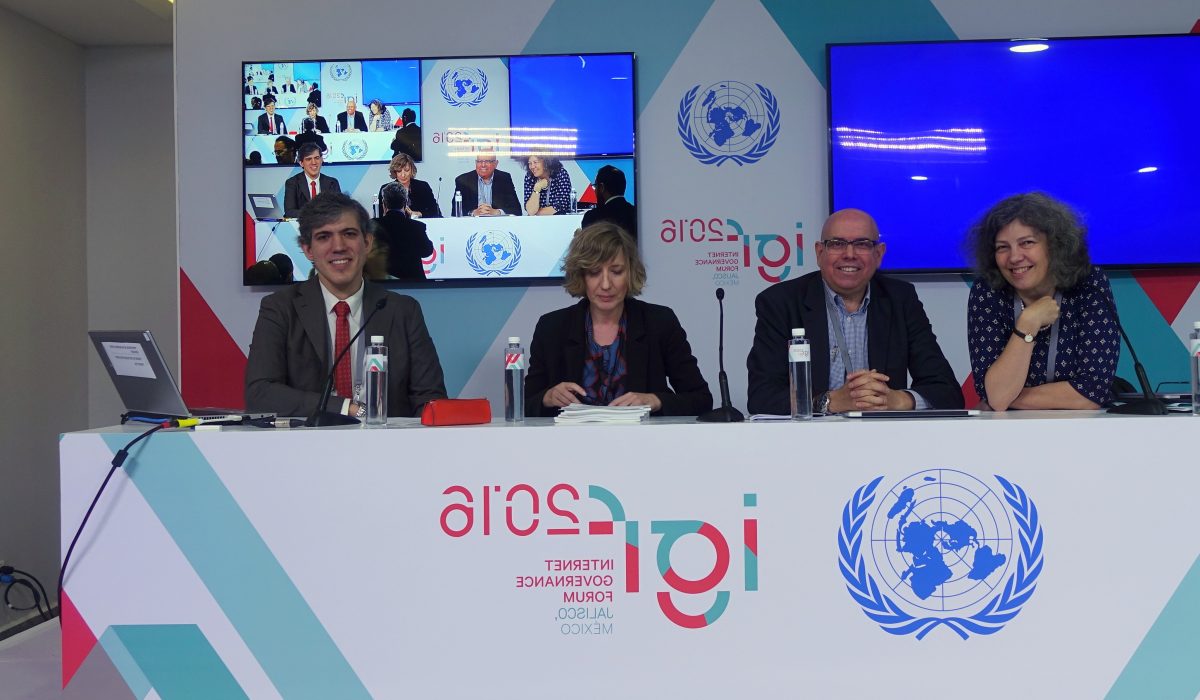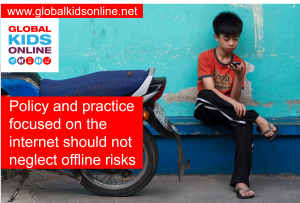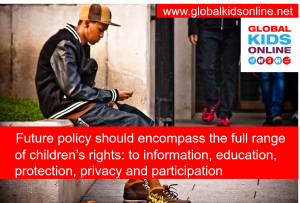The speakers discussed the results from the first year of research under the Global Kids Online initiatives and opportunities for using evidence in policy making particularly in relation to children’s digital skills and literacies, safety online, civic engagement, privacy and freedom of expressions. Access, skills, risks and opportunities are all part of the overall picture of children’s well-being and rights in the digital age and should all, therefore, be kept in mind when developing policy interventions.
Furthermore, children are not a homogenous group and their internet use, opportunities and risks are closely linked to their age, level of digital skills, places of access (school or home), devices they use and support they receive. It is important, therefore, to differentiate policy goals based on these differences and real life situations. Policy must also pay special attention to those who may be of greater vulnerability, such as indigenous or ethnic minority children, migrants, children in poor or rural settings or those who have some form of disability. Sources of potential vulnerability like these are measured in the Global Kids Online toolkit and can
The findings suggest that use of the internet is now contributing to the risks facing children, but policy and practice focused on the internet should not neglect offline risks, while those focused on offline risks should now take into account online dimensions. The relationships between online and offline activity may amplify risk by extending the ways in which a child can be approached, but they can also help ensure children’s safety, for example by providing online helplines or confidential support, for example.
Future policy and practice should encompass the full range of children’s rights including the rights to information, education, protection, privacy and participation; it needs to be holistic but also integrated and mainstreamed in other national policies that a) deal with children’s rights in general and b) are aimed at the development of ICT services and the information society.
Watch the plenary session Global Kids Online: From research on children’s rights in the digital age to national and international policy and download the presentations by Jasmina Byrne and Sonia Livingstone and by Alexandre Barbosa.
Further resources:
Download the practice guide From research findings to policy-making (see video) developed by Global Kids Online.
The key comparative findings from Global Kids Online are available in the Research Synthesis report and are summarised in the Executive summary.
Recent findings from Global Kids Online Latin America.
You can sign up to receive the latest research news from Global Kids Online by email. Please forward this message to anyone you think may be interested.
Post author: Mariya Stoilova










